International Women's Day 2020: History, strikes and celebrations
- Published
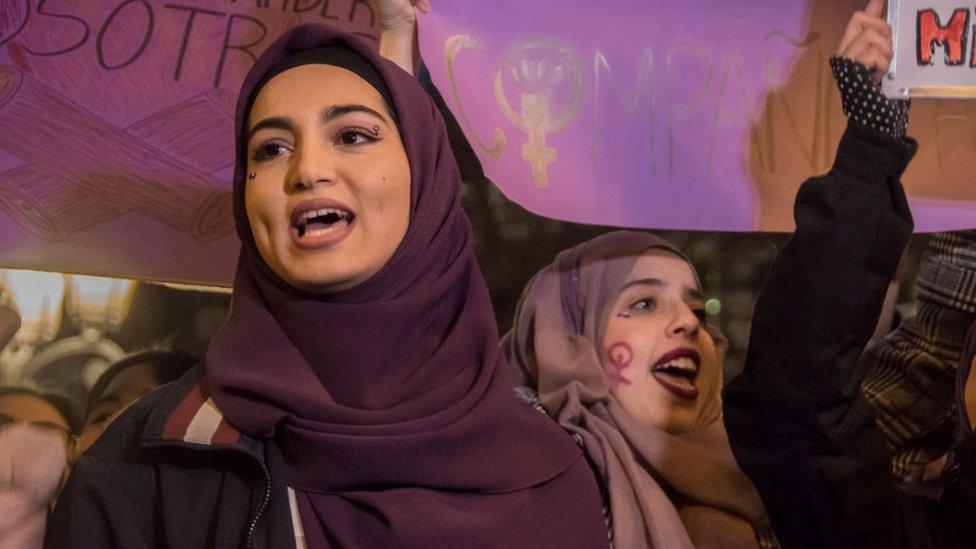
Thousands of women protested on the streets of Madrid in 2019
You might have seen International Women's Day mentioned in the media or heard friends talking about it. But what is it for? When is it? Is it a celebration or a protest? And is there an equivalent International Men's Day?
For more than a century people around the world have been marking 8 March as a special day for women. Read on to find out why.
1. When did it all start?
International Women's Day grew out of the labour movement to become a UN-recognised annual event.
The seeds of it were planted in 1908, when 15,000 women marched through New York City demanding shorter working hours, better pay and the right to vote. It was the Socialist Party of America who declared the first National Woman's Day, a year later.
The idea to make the day international came from a woman called Clara Zetkin. She suggested the idea in 1910 at an International Conference of Working Women in Copenhagen. There were 100 women there, from 17 countries, and they agreed on her suggestion unanimously.
It was first celebrated in 1911, in Austria, Denmark, Germany and Switzerland. The centenary was celebrated in 2011, so this year we're technically celebrating the 109th International Women's Day.
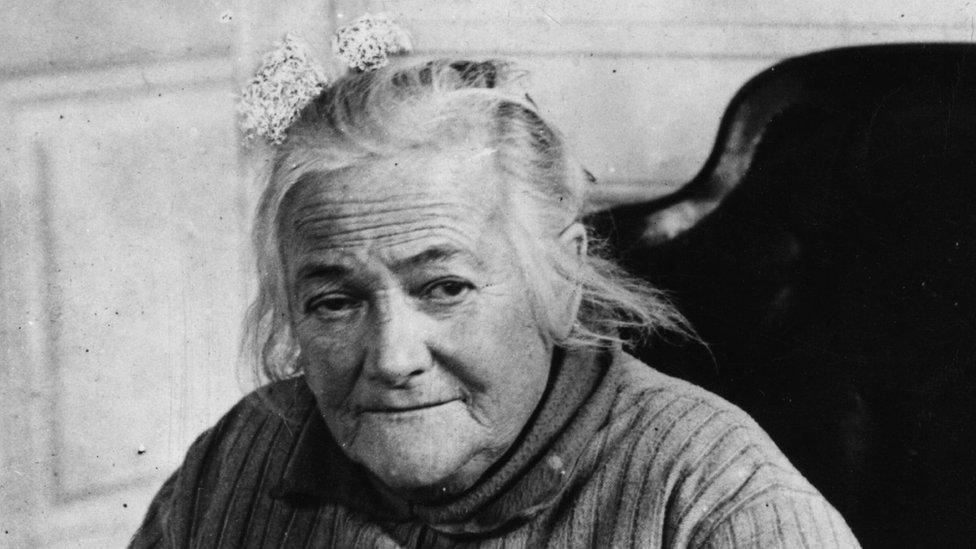
Clara Zetkin founded International Women's Day in 1910
Things were made official in 1975 when the United Nations (UN) started celebrating the day. The first theme adopted by the UN (in 1996) was "Celebrating the past, Planning for the Future". This year's focuses on "An equal world is an enabled world", external and asks for people to work together to create a gender equal world.
International Women's Day has become a date to celebrate how far women have come in society, in politics and in economics, while the political roots of the day mean strikes and protests are organised to raise awareness of continued inequality.
2. When is it?
8 March. Clara's idea for an International Women's Day had no fixed date. It wasn't formalised until a war-time strike in 1917 when Russian women demanded "bread and peace" - and four days into the women's strike the Tsar was forced to abdicate and the provisional government granted women the right to vote. The date when the women's strike commenced on the Julian calendar, which was then in use in Russia, was Sunday 23 February. This day in the Gregorian calendar was 8 March - and that's when it's celebrated today.
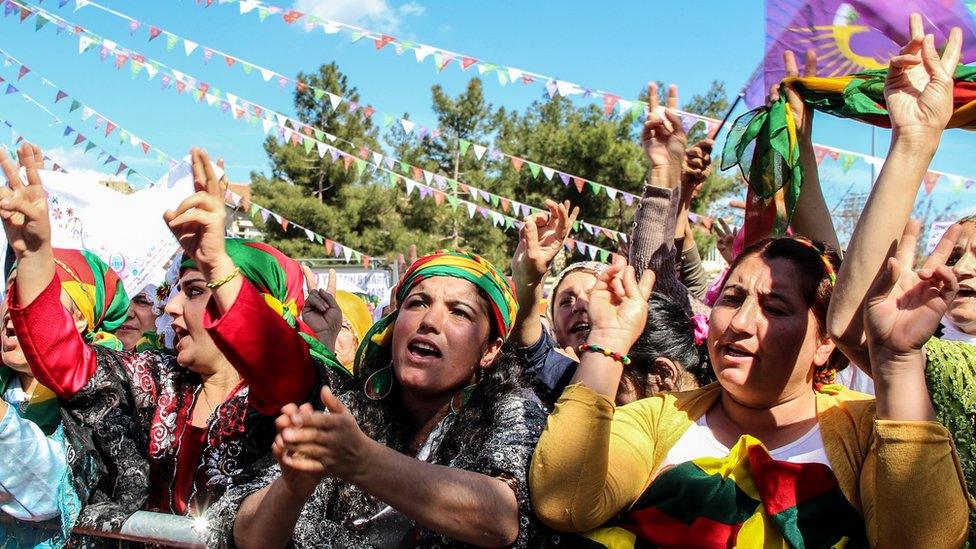
An International Women's Day demonstration in Diyarbakir, Turkey in 2016
3. Is there an International Men's Day?
There is indeed, on 19 November. But it has only been marked since the 1990s and isn't recognised by the UN. People celebrate it in more than 60 countries, including the UK. The objectives of the day are "to focus attention on men's and boys' health, improve gender relations, promote gender equality and highlight positive male role models". The theme for 2019 was "Making a difference for men and boys", external.
4. How is Women's Day celebrated around the world?
International Women's Day is a national holiday in many countries, including Russia where the sales of flowers doubles during the three or four days around 8 March.
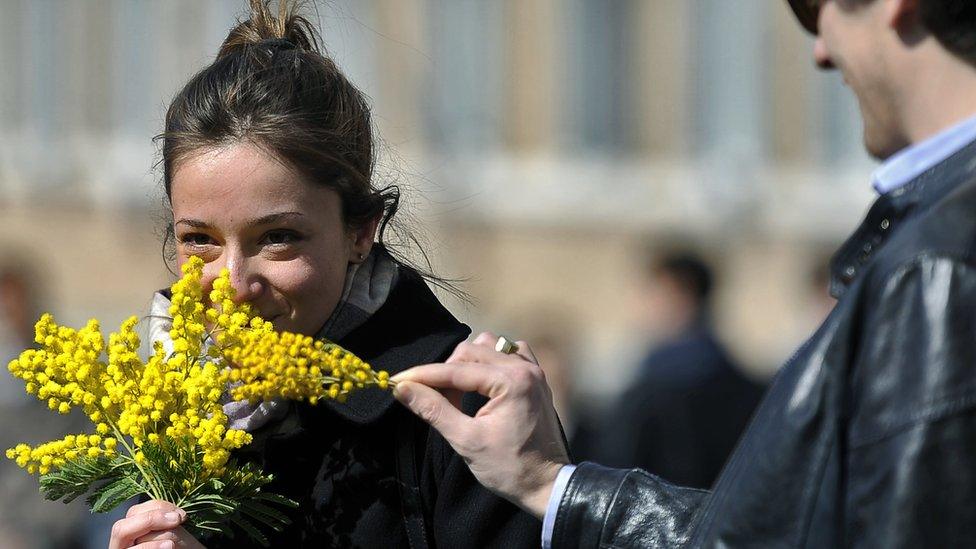
A woman holds a bunch of mimosa in Rome on International Women's day 2012
In China, many women are given a half-day off work on 8 March, as advised by the State Council, although many employers don't always pass the half-day on to their female employees.
In Italy, International Women's Day, or la Festa della Donna, is celebrated by the giving of mimosa blossom. The origin of this tradition is unclear but it is believed to have started in Rome after World War Two.
In the US, the month of March is Women's History Month. A presidential proclamation issued every year honours the achievements of American women.
5. What is happening this year?
This year's International Women's Day campaign has chosen the theme #EachForEqual, external, which is drawn from the idea of collective individualism.
"We are all parts of a whole," the campaign states. "Our individual actions, conversations, behaviours and mindsets can have an impact on our larger society.
"Collectively, we can make change happen. Collectively, we can each help to create a gender equal world."
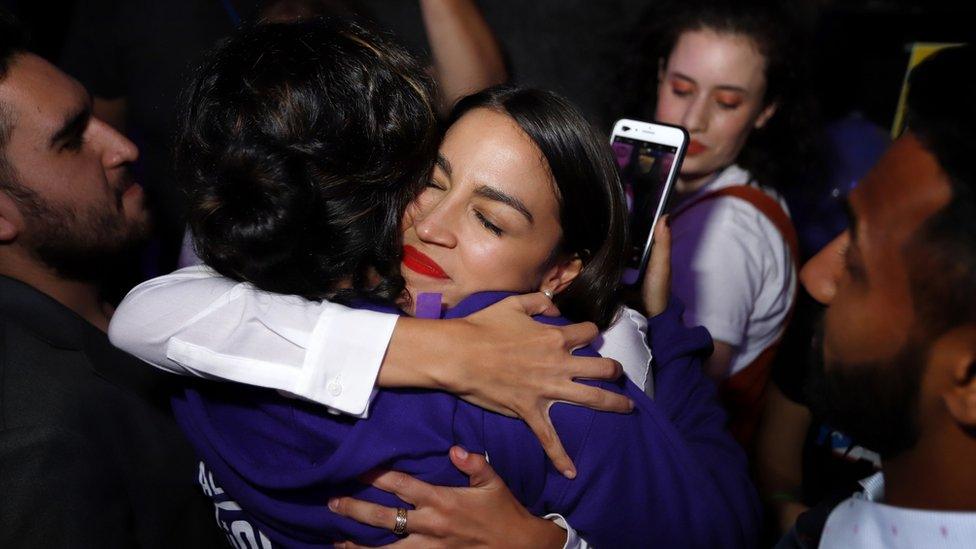
Alexandria Ocasio-Cortez became the youngest woman elected to Congress in November 2018.
The past few years have seen the women's movement reach an unprecedented scale. In October 2017, millions began using the hashtag #MeToo on social media to speak out against experiences of harassment and sexual assault, and to denounce their widespread prevalence.
In 2018, the #MeToo conversation grew to a global scale, with countries such as India, France, China, and South Korea joining in the conversation to demand change. In the US, a record number of women were elected in the midterm elections.
Last year saw abortion decriminalised in Northern Ireland and the repeal of a law that controlled how women acted and dressed in public in Sudan.

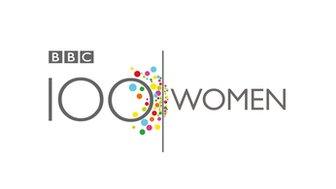
What is 100 Women?
BBC 100 Women names 100 influential and inspirational women around the world every year. We create documentaries, features and interviews about their lives, giving more space for stories that put women at the centre.
Follow BBC 100 Women on Instagram, external and Facebook , externaland join the conversation.